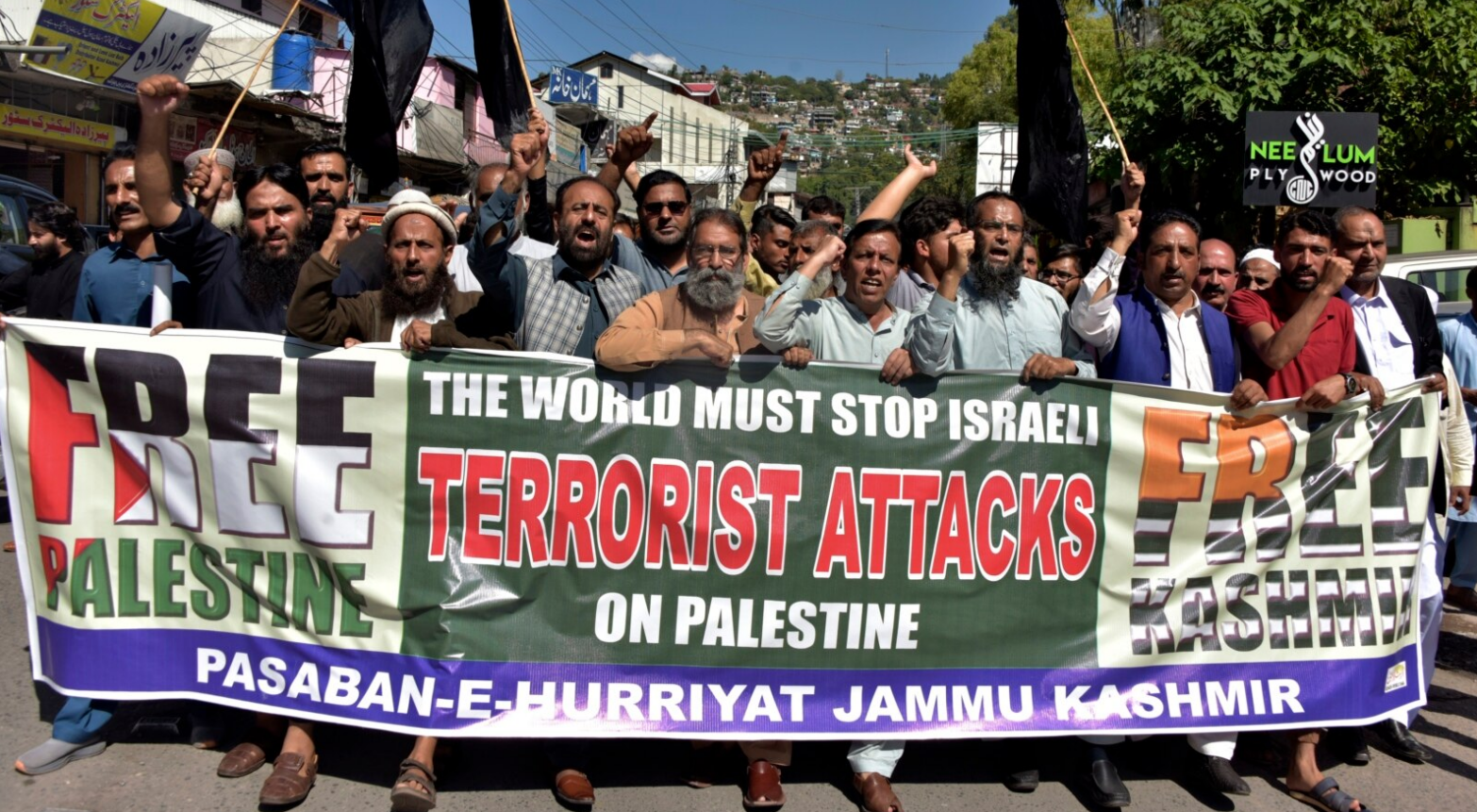The midst of the recent hostilities between Israel and Hamas, a new casualty emerges— the ongoing debate in Pakistan on whether to recognize the Jewish state. While Israel’s attempts to foster ties with Saudi Arabia and the broader Muslim world face uncertainty, critics argue that the conflict is putting a significant damper on public discourse in Pakistan regarding diplomatic recognition.
Pakistan, adhering to a longstanding policy shared by many Muslim-majority countries, refrains from establishing diplomatic ties with Israel until the establishment of the state of Palestine. This policy is deeply embedded, reflected even in Pakistani passports that explicitly exclude Israel as a valid destination.
The debate in Pakistan gained momentum with the U.S.-brokered Abraham Accords, which saw the normalization of relations between the United Arab Emirates, Bahrain, and Israel in 2020. The recent public discourse was further fueled when Fishel Benkhald, a Pakistani Jew, announced the successful export of kosher food to Jerusalem and Haifa. However, officials in Islamabad clarified that this was an individual initiative through a third country, not an indication of direct trade ties.
Unfortunately, the recent hostilities have thrown a wrench into any further discussion on potential Israeli-Pakistani relations, at least for the time being. Senator Mushahid Hussain, chair of the defense committee in the Pakistani parliament, emphasized that the Gaza conflict has effectively buried the recognition debate, asserting that Pakistan’s perspective on the matter is distinct from some Arab nations pursuing ties with Israel.
Former Pakistani ambassador Maleeha Lodhi concurs, stating that the time is not ripe for exploring normalization, given the strong public sentiments in support of Palestine. Islamic groups and right-wing parties in Pakistan vehemently oppose establishing ties with Israel, as evidenced by recent protests against Israeli attacks on Gaza.
The Pakistani foreign ministry, maintaining a fairly neutral stance, expressed concern about the human cost of the escalating situation and called for international efforts to cease hostilities and establish lasting peace in the Middle East.
Israeli Foreign Minister Eli Cohen’s remarks suggesting that several Muslim countries could make peace with Israel if it signed an agreement with Saudi Arabia were promptly dismissed by Pakistani Foreign Minister Jalil Abbas Jilani. Jilani reaffirmed that there is no change in Pakistan’s policy toward Israel, emphasizing the prioritization of national interests.
The Gaza conflict’s impact on Arab and Muslim normalization with Israel is acknowledged by Pakistani political commentator Ahmed Quraishi, who argues that public opinion is a crucial factor governments must consider. Despite potential setbacks, he believes the urgency of integration and normalization remains, emphasizing the need to prevent militant groups from hijacking regional conflicts.
In the complex landscape of Middle Eastern geopolitics, the Gaza conflict has not only stalled diplomatic discussions but has also reignited debates on the role of Western nations in the Israeli-Palestinian conflict. Senator Hussain criticized U.S.-led Western nations for what he perceives as double standards and hypocritical attitudes in their approach to the situation.
As the region grapples with the immediate aftermath of the Gaza conflict, the future of the debate on recognizing Israel in Pakistan remains uncertain. The geopolitical landscape, public sentiment, and regional dynamics will continue to shape the trajectory of this complex and nuanced discussion.


